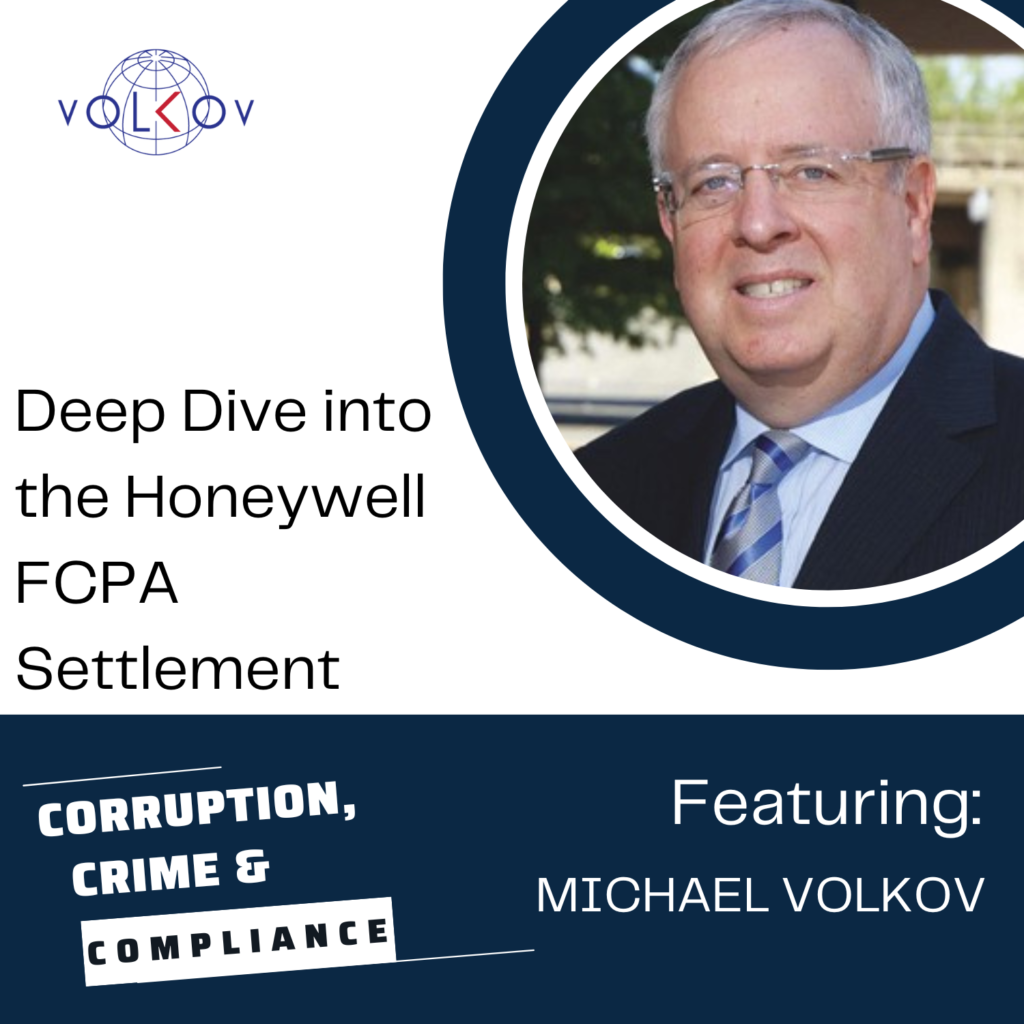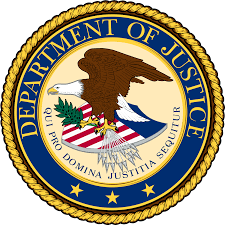To close out 2022 in Foreign Corrupt Practices Act (FCPA) enforcement actions, the Department of Justice (DOJ) and Securities and Exchange Commission (SEC) announced settlements of FCPA enforcement actions with Honeywell UOP, a US-based subsidiary of Honeywell International Inc. For its actions, Honeywell agreed to a criminal penalty of about $79 million, with the DOJ crediting up to $39.6 million of the criminal penalty for Honeywell’s payments to authorities in Brazil in related proceedings. The company agreed to pay the SEC $81.5 million in disgorgement and prejudgment interest and the SEC provided for an offset of up to $38.7 million for payments to Brazilian authorities. Today, I want to conclude with some lessons learned.
Honeywell’s Comeback
- Overcoming a Failure of Culture
When the underlying facts of this enforcement action began, Honeywell had one of the most corrupt cultures you could have imagined. As I noted yesterday, the bribery scheme in Brazil began with the business unit outright lying to the compliance function about a corrupt agent. But do not absolve the company’s compliance function as apparently they performed no due diligence or did even the bare minimum for agents in a clear high-risk jurisdiction. Unfortunately, this outright corruption and/or malfeasance only went downhill from there. There was a profit-sharing agreement with the corrupt Petrobras agent which clearly showed malfeasance from Honeywell’s finance folks for paying such a scheme where there was no written agreement or any other evidence which warranted payments of over $10 million. The bribery scheme in Algeria involved the corrupt third-party Unaoil and once again bribe payments were approved all the way up the business and compliance line with Honeywell Belgium finance signing off as well.
Yet even with this clear culture of corruption, Honeywell received a 25% discount off the minimum fine and penalty under the US Sentencing Guidelines. They did this without self-disclosing. Once again since Unaoil was involved, it would be a logical assumption, the Unaoil executive brought to the US and given immunity proved the initial information on Honeywell’s corruption. Honeywell did turn things around so that in addition to the 25% discount, they were not required to sustain a monitor. All in all, quite a comeback.
2. Extraordinary Cooperation
According to the Deferred Prosecution Agreement (DPA), Honeywell received full credit for its cooperation with the DOJ through its “(i) proactively disclosing certain evidence of which the Fraud Section and the Office were previously unaware; (ii) providing information obtained through its internal investigation, which allowed the government to preserve and obtain evidence as part of its own independent investigation; (iii) making detailed presentations to the Fraud Section and the Office; (iv) voluntarily facilitating interviews of employees; (v) collecting and producing voluminous relevant documents and translations to the Fraud Section and the Office, including documents located outside the United States.” The SEC added in its Order, “Honeywell cooperated in the Commission’s investigation by identifying and timely producing key documents identified in the course of its own internal investigation, providing the facts developed in its internal investigation, and making current or former employees available to the Commission staff, including those who needed to travel to the United States.”
2. Extensive Remediation
Honeywell was given credit by both the SEC and DOJ for its remedial efforts. The SEC said, the “remediation included: (i) strengthening its ethics and compliance organization; (ii) terminating sales directors involved in the misconduct in Brazil and demoting an employee with significant supervisory responsibilities over the misconduct in Brazil; (iii) implementing a program to eliminate UOP’s use of sales agents altogether (as of 3Q 2021, UOP had reduced its sales agent force by two-thirds); (iv) enhancing Honeywell’s policies and procedures including with respect to due diligence of third parties (including consolidating the due diligence process into one automated system and requiring third parties to submit quarterly reports and FCPA certifications); (v) improving Honeywell’s financial controls over third parties (including implementing digital end-to-end controls over payments to third party sales agents and ensuring that payments to sales intermediaries are made by wire transfer to an account belonging to the same party and to a bank account where the sales intermediary resides); and (vi) enhancing training provided to Honeywell employees and sales intermediaries regarding anti-corruption, controls, and other compliance issues.”
The DOJ noted that Honeywell, “(i) commencing remedial measures based on internal investigations of the misconduct prior to the commencement of the Fraud Section’s and the Office’s investigation; (ii) disciplining certain employees involved in the relevant misconduct, including terminating one employee; (iii) strengthening its anti-corruption compliance program by investing in compliance resources, expanding its compliance function with experienced and qualified personnel, and taking steps to embed compliance and ethical values at all levels of its business organization; (iv) substantially reducing its anti-corruption risk profile by taking steps to eliminate the Company’s use of sales intermediaries and, in the interim, rolling out a single, automated sales intermediary due diligence tool that requires responsible managers to provide quarterly compliance certifications for all existing sales intermediaries; (v) establishing monitor and audit processes to regularly review and update the compliance program; and (vi) enhancing its internal reporting, investigations, and risk assessment processes.”
From the SEC Order, the two key changes were: “(iv) enhancing Honeywell’s policies and procedures including with respect to due diligence of third parties (including consolidating the due diligence process into one automated system and requiring third parties to submit quarterly reports and FCPA certifications); (v) improving Honeywell’s financial controls over third parties (including implementing digital end-to-end controls over payments to third party sales agents and ensuring that payments to sales intermediaries are made by wire transfer to an account belonging to the same party and to a bank account where the sales intermediary resides);”. Both of these remediations speak to the use of tech solutions to enhance compliance. Under Prong IV, the implementation of one automated system for third parties.
From the DOJ DPA, the key changes were “(iii) strengthening its anti-corruption compliance program by investing in compliance resources, expanding its compliance function with experienced and qualified personnel, and taking steps to embed compliance and ethical values at all levels of its business organization; (iv) substantially reducing its anti-corruption risk profile by taking steps to eliminate the Company’s use of sales intermediaries and, in the interim, rolling out a single, automated sales intermediary due diligence tool that requires responsible managers to provide quarterly compliance certifications for all existing sales intermediaries;”. Once again, the tech solution noted in Prong IV was critical but also note the language found in Prong III about have ‘experienced and qualified [compliance] personnel.
By putting these remedial actions in place, Honeywell was able to avoid a monitor. This means the company not only put the changes in place but have also tested them to the satisfaction of the DOJ and SEC. But more than setting out what Honeywell did to make its comeback; these remedial efforts of Honeywell provide a clear set of guidelines for the compliance professional to review in looking at your own program. This enforcement actions seems a fitting end for the year 2022 in FCPA enforcement.









